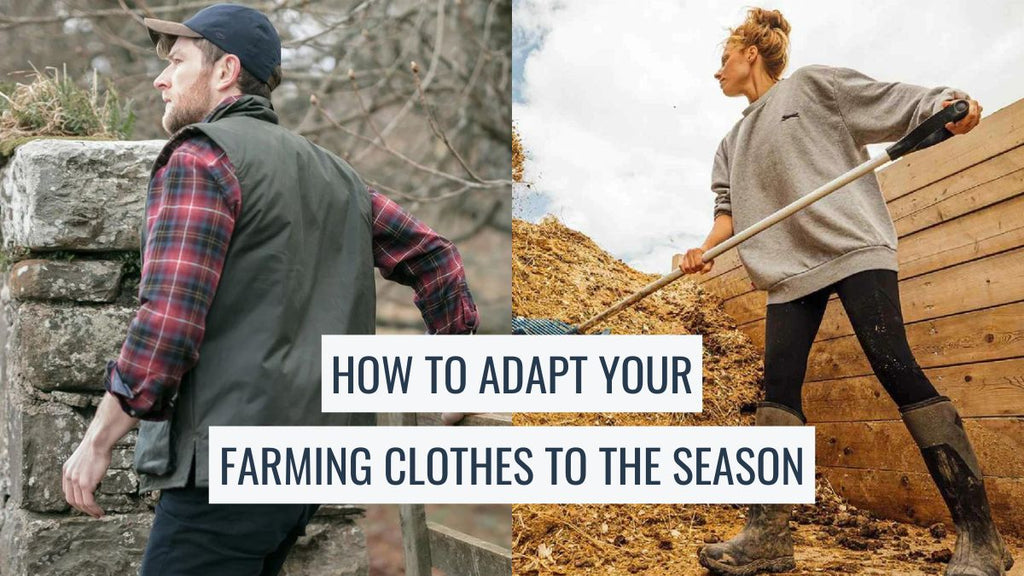
The Key to Adapting Your Farmers Clothes to the Season
Farming is a year-round job that involves working outdoors in various weather conditions.
As a farmer, it's important to be prepared for whatever Mother Nature throws your way. Wearing the appropriate clothing not only keeps you comfortable, but it also ensures your safety and helps you stay productive.
Investing in the right farming attire for each season can make a world of difference in your daily tasks. Whether it's dressing for the heat of summer or layering up for the cold of winter, determining how to adapt your farming clothes is essential knowledge.
In this blog post, we explore how to get the best of your clothing by providing top tips and strategies to help you dress appropriately for every season on the farm.
How Do Farmers Dress?
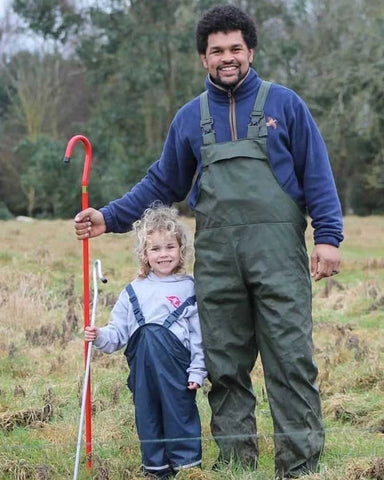
Farmers clothes are specifically designed to provide comfort, protection, and practicality for those working in the agricultural industry.
As these garments will be worn for tough farm work, they need to be tough themselves. They should be made with durable materials and have features which help farmers go about their day effectively and efficiently.
Some key pieces of farm clothing are:
- Waterproof Jackets - these allow farmers to be protected from rainy and snowy conditions, and are useful additions to have on hand all year round
- Overalls - these are commonly worn by farmers as they offer full-body protection. They are usually made from sturdy materials and have multiple pockets for tools and other essentials
- Farm Boots - a crucial part of a modern farmer's attire. These boots are often waterproof and provide support and grip for working in various terrains. They also have reinforced toes for protection against heavy objects
- Hats - farmers tend to wear hats to shield themselves from the sun and provide additional protection in adverse weather conditions. These hats can be wide-brimmed for sun protection or waterproof for rainy weather.
Overall, farmers' clothing is designed to prioritise functionality, durability, and protection to ensure optimal comfort and safety during farm work.
What Do Farmers Wear in the Summer?

Summer weather brings higher temperatures, longer days, and increased humidity, requiring farmers to adapt their clothing to stay comfortable and safe.
The strategy for a summer wardrobe should focus on the use of lightweight fabrics and breathable materials. This will allow for air circulation and prevent overheating.
Wearing short-sleeved shirts is a wise decision, plus investing in a wide-brimmed hat to protect and provide shade. If appropriate for the work environment, shorts can be worn or, alternatively, loose-fitting breathable trousers to help stay cool.
It's important to remember that the clothing is still farm workwear, so, whilst it may be tempting to wear less in the summer heat, farmers should not compromise on safety. They should continue wearing appropriate safety gear such as gloves, boots, and eye protection to prevent any accidents or injuries.
Top Tips for Adapting Farming Clothes
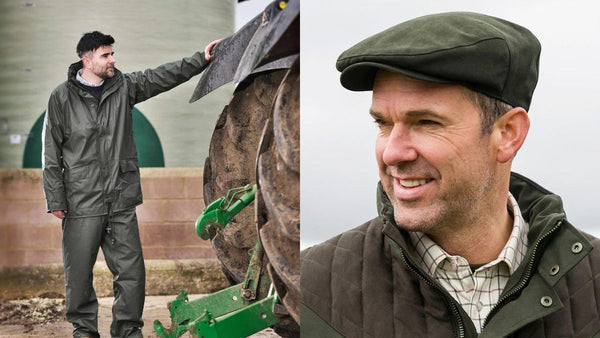
Adapting farming clothes to the season is crucial to ensuring comfort, safety, and productivity for farmers.
The changing weather conditions pose different challenges throughout the year, and having appropriate clothing can make a significant difference.
Our top tips are:
- Invest in Layering
- Choose the Right Fabrics
- Protect Your Head, Hands, and Feet
- Utilise Accessories
- Don't Forget about Waterproof Clothing
- Regularly Clean and Maintain Your Farming Clothes.
1. Invest in Layering
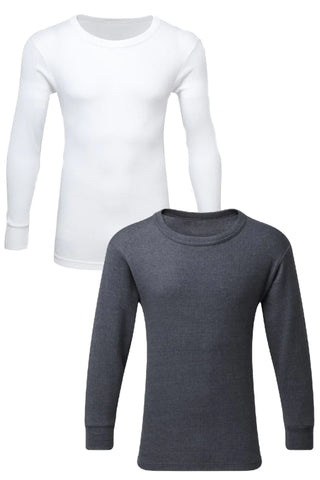
Layering allows you to easily regulate your body temperature and stay comfortable throughout the day.
Here's how to effectively implement layering into your farm attire:
- Start with a moisture-wicking base layer. This will help prevent you from feeling damp and uncomfortable, even during active work
- Add a mid-layer for insulation. This can be a fleece gilet, jumper, or similar, depending on how hot or cold the day is
- Top it off with a weatherproof outer layer. Invest in a durable waterproof jacket to get maximum protection from downpours and snowy days.
By following this layering system, you can easily add or remove layers as the temperature fluctuates. This flexibility allows you to adapt to changing weather conditions and ensures that you are comfortable and productive while working on the farm.
2. Choose the Right Fabrics
When it comes to adapting your attire, opt for fabrics that are breathable in the summer and insulating in the winter.
During the summer months, it's important to choose fabrics that allow air to circulate, keeping you cool and preventing excessive sweating. Cotton is a popular choice as it is lightweight and breathable. It helps to wick away moisture from your skin, keeping you dry and comfortable even in hot weather.
In contrast, when winter rolls around, it's essential to select fabrics that provide excellent insulation, trapping heat close to your body. Wool is a natural and warm fabric that is perfect for cold weather. It is known for its excellent insulation properties and ability to retain heat, ensuring that you stay warm even in freezing temperatures.
Synthetic fabrics like fleece are also great options for winter farming clothes. Fleece is super soft, lightweight, and provides exceptional insulation. It is designed to keep you warm and cosy without feeling bulky. Additionally, fleece is moisture-wicking, so it helps to keep sweat away from your skin, preventing you from feeling damp in the cold weather.
3. Protect Your Head, Hands, and Feet
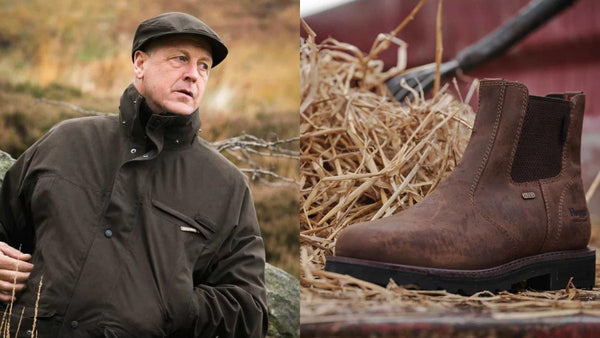
When it comes to farming, it's not just about choosing the right clothing for the seasons. It's also crucial to protect your extremities - your head, hands, and feet.
- First and foremost, don't forget to invest in a good farmers hat or cap. In the scorching summer months, it will shield your head and face from the sun's harsh rays, preventing sunburn and heatstroke. Look for a hat that offers UPF (Ultraviolet Protection Factor) to ensure maximum sun protection. In the winter, a beanie or bobble hat will help retain heat and keep your head warm
- Your hands are essential tools on the farm, so keeping them protected is a must. Opt for gloves that not only provide a strong grip but also safeguard your hands from cuts, blisters, and other potential injuries
- Lastly, don't overlook the importance of appropriate footwear. In winter, sturdy farm boots or insulated wellies will keep your feet warm and dry, protecting them from cold temperatures, wet conditions, and potential hazards. In the summer, lightweight and breathable boots are a better choice to prevent your feet from overheating and sweating excessively.
4. Utilise Accessories
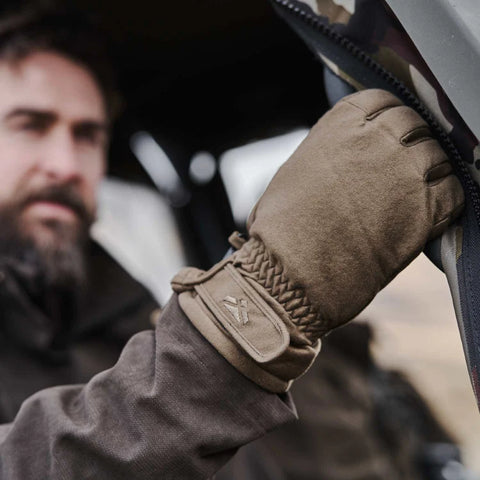
Accessories can make a big difference in your comfort level while farming.
In the winter, the cold temperatures can be harsh on your neck and face. To stay warm and protected, consider wearing neck gaiters or scarves. These versatile accessories can be wrapped around your neck and face to provide extra insulation and prevent cold air from penetrating your clothing.
Aside from protecting your skin and providing warmth, it's also important to consider accessories that can prevent strain and injuries during farm work. Knee pads can offer cushioning and support when kneeling or crouching for extended periods. Plus, choosing a sturdy belt or braces can assist in getting the perfect fit, which subsequently aids comfort and efficiency.
5. Don't Forget About Waterproof Clothing
Don't forget about waterproof clothing! Rain is a common occurrence in many farming regions, so it's essential to be prepared and stay dry during wet weather.
Investing in a good quality waterproof jacket should be a priority. Look for options that are breathable to prevent sweat buildup, keeping you comfortable throughout the day.
In addition, consider getting waterproof trousers or overtrousers to provide peace of mind for sudden showers or mucky tasks. Waterproof overalls are also a winner, particularly for farm duties that involve a lot of dirt or mud.
6. Regularly Clean and Maintain Your Farming Clothes
Proper maintenance is essential to ensure the longevity and effectiveness of your farming clothes.
Regularly cleaning and maintaining your clothing not only helps remove dirt, stains, and odours but also helps identify any damage that may require repairs.
Here are some tips to help you keep your farming clothes in good condition:
- Wash your clothes regularly. It sounds simple, but it's important to get the clothes straight in the wash, rather than leave them in the basket for days. This prevents dirt and smells from becoming ingrained, and therefore more difficult to remove
- Check for damage. Inspect your clothing for any loose buttons, ripped seams, or other signs of damage. These issues can worsen over time if not addressed promptly. Repair any damage as soon as possible to prevent further wear and tear
- Follow care instructions on the labels. Different materials require different care methods. Read the care instructions on your clothing and follow them accordingly. Using the appropriate cleaning products and techniques will help maintain the quality and durability of your farming clothes
- Store properly. After washing and drying your clothes, store them properly to prevent damage. Hang jackets and trousers on sturdy hangers to maintain their shape, and avoid storing them in damp or humid areas that can promote mildew growth.
By following this guidance, you can extend the lifespan of your garments and ensure they continue to provide the necessary protection and comfort you need during farm activities.
Summary
Adapting your farming clothes to the changing seasons is essential for a comfortable and efficient farm living experience. By incorporating an extra layer or investing in a versatile farmers jacket, you can easily adjust to fluctuating temperatures and weather conditions.
Embracing a range of farm clothing designed to withstand the demands of countryside activities will not only enhance your performance but also ensure your safety and comfort.
By understanding the importance of adapting your farming clothes to each season, you can fully enjoy the rewards of countryside living whilst taking care of the tasks at hand.
So gear up, stay comfortable, and reap the benefits that well-suited farming clothing brings to your life in the countryside.









